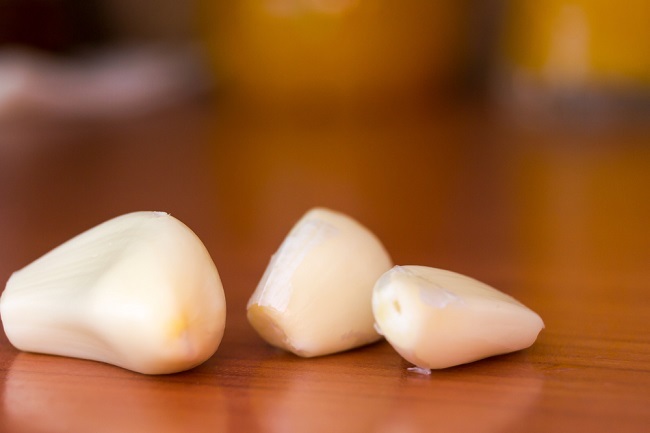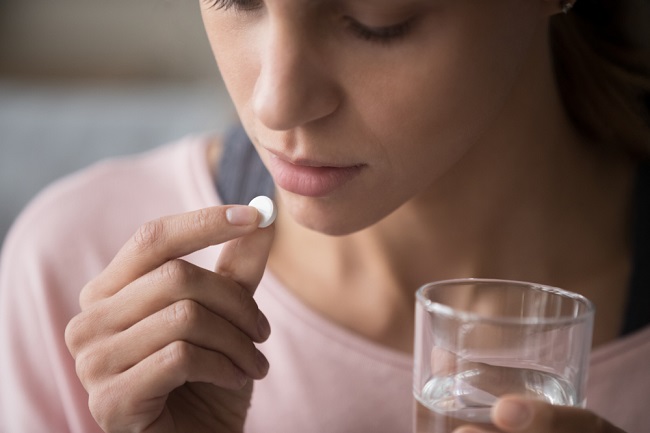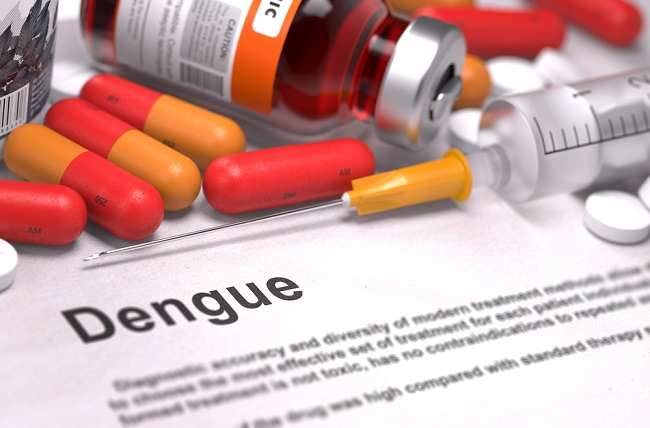Consumption of headache medication is one of the most common ways to treat headaches. However, it is better if you know in advance the type of headache you are experiencing so that it can be treated with the right headache medication and the treatment is effective.
There are several types of headaches, namely tension headaches, migraine headaches, and headaches cluster. Various factors can trigger headaches, ranging from stress, fatigue, to disorders of the blood vessels and nerves in the head.

In order to be effective in dealing with complaints of headaches that are felt, the use of headache medications needs to be adjusted to the type of headache you are experiencing.
Consumption of the Right Headache Medication
The following are some types of headache medication that can be used according to the type of headache that appears:
1. Non-steroidal anti-inflammatory drugs (NSAIDs)
Non-steroidal anti-inflammatory drugs (NSAIDs) are drugs that can relieve inflammation, fever, and pain, including headaches.
NSAIDs can be used to treat tension headaches and migraines. The types of NSAID headache medications that can be purchased over-the-counter and used without a doctor's prescription are paracetamol and ibuprofen.
These drugs are quite effective for treating headaches. However, if the headache you experience does not improve even after using these drugs, you should check with your doctor.
2. Ergotamine
Ergotamine is a headache medication used to treat migraines and is less effective at treating other types of headaches. However, unlike over-the-counter pain relievers, headache medicine ergotamine can only be obtained through a doctor's prescription.
Although quite effective for treating migraines, headache drugs ergotamine can cause some side effects, such as nausea, vomiting, muscle cramps or pain, and trouble sleeping.
In addition, this drug is also not recommended for use by people with certain medical conditions, such as heart disease, stroke, high blood pressure, pregnant women, and people with kidney and liver function disorders.
3. Triptan drugs (5HT1 agonists)
This type of headache medication can be used to treat migraine symptoms and cluster headaches. Sometimes, this medication can be used in conjunction with other headache medications, such as pain relievers and painkillers ergotamine. Triptan headache drugs can only be used according to a doctor's prescription.
Several types of triptans are used to treat migraines and headaches cluster is sumatriptan, eletriptan, and naratriptan.
4. Caffeine
Caffeine which is found naturally in coffee, tea, and chocolate is often consumed because of its effects that can fight drowsiness. However, in addition to fighting drowsiness, caffeine can also be used as a headache medication to relieve migraine symptoms. As a drug, caffeine is often combined with ergotamine.
Although it can be used as a headache medicine, excessive caffeine consumption is actually not good because it can trigger the effects of caffeine dependence. This can actually cause withdrawal symptoms from caffeine which can cause headaches.
Therefore, caffeine can only be used as a headache remedy in the short term or as directed by a doctor.
5. Calcium channel blockers
Calcium channel blockers is a drug commonly used to treat heart problems and high blood pressure. However, this drug can also be used as a headache medicine, especially for migraines and cluster headaches that often recur and don't get better with other treatments.
Medications included calcium channel blockers is verapamil and diltiazem. In addition to relieving the symptoms of cluster headaches and migraines, this drug can also be used to prevent the recurrence of these types of headaches.
6. Antidepressants
Antidepressant headache medication is not the main choice for treating headaches. This medication is usually given for headaches that don't work with other headache medications or for headaches caused by psychological problems, such as anxiety and depression.
In addition to antidepressant drugs, doctors can also prescribe other drugs such as sedatives, lithium, antipsychotics, or anti-anxiety drugs to treat headaches that are difficult to treat with other headache medications.
Some Self-Care Steps for Headaches
In addition to taking the headache medications above, you can also treat headaches with the following natural and simple treatments:
- Take a warm bath to reduce muscle tension and make you feel more relaxed.
- Perform gentle massage on the temples, head, neck, back, and shoulders to reduce muscle tension.
- Get enough rest and relax for a while while listening to music or turning on aromatherapy.
- Relax with light exercise, breathing exercises, or yoga and meditation.
- Rest in a dark and comfortable room.
- Avoid excessive consumption of alcohol and caffeine.
Headaches are generally harmless and can subside on their own with the simple treatments above or with the use of headache medications. However, you need to be vigilant if the headache you feel appears along with other symptoms, such as:
- Fever
- Seizures
- Nausea and vomiting
- Fainting or loss of consciousness
- Weakened or paralyzed limbs
- Stiff neck
- Visual disturbance
- Unbearable severe headache
- Tingling or numbness
If your headache doesn't improve even though you have used several types of headache medicine or it appears along with some of the symptoms above, immediately see a doctor to get the right treatment.









